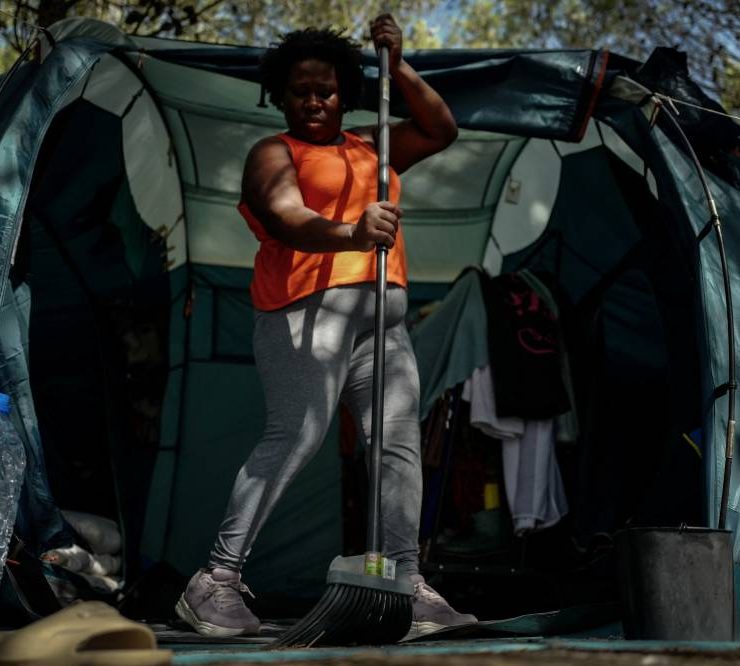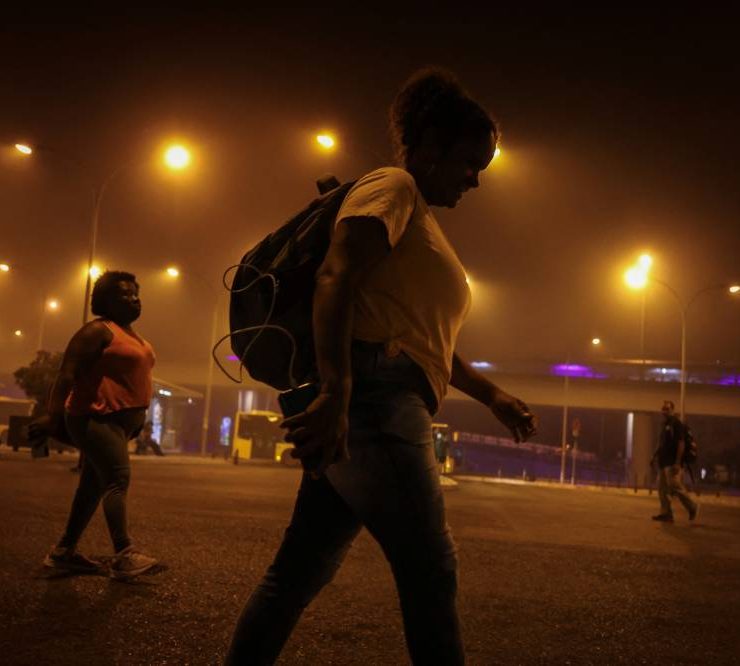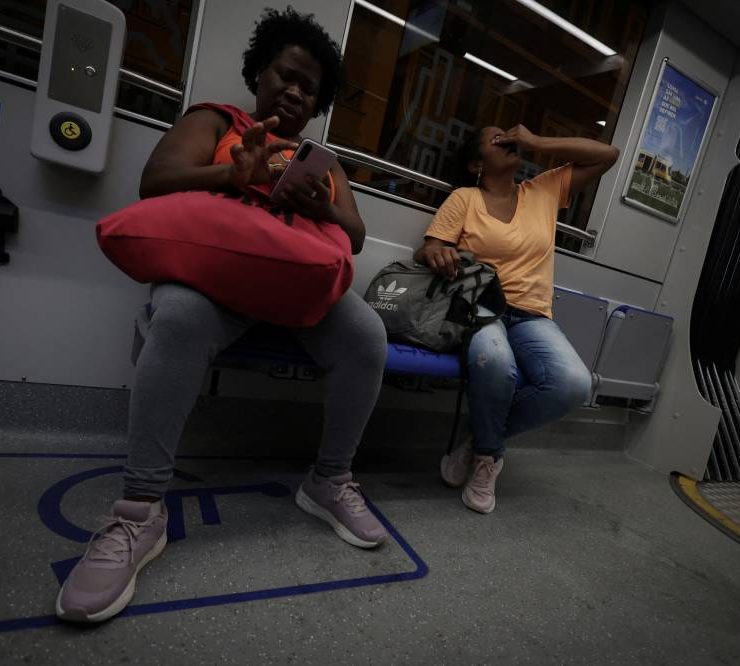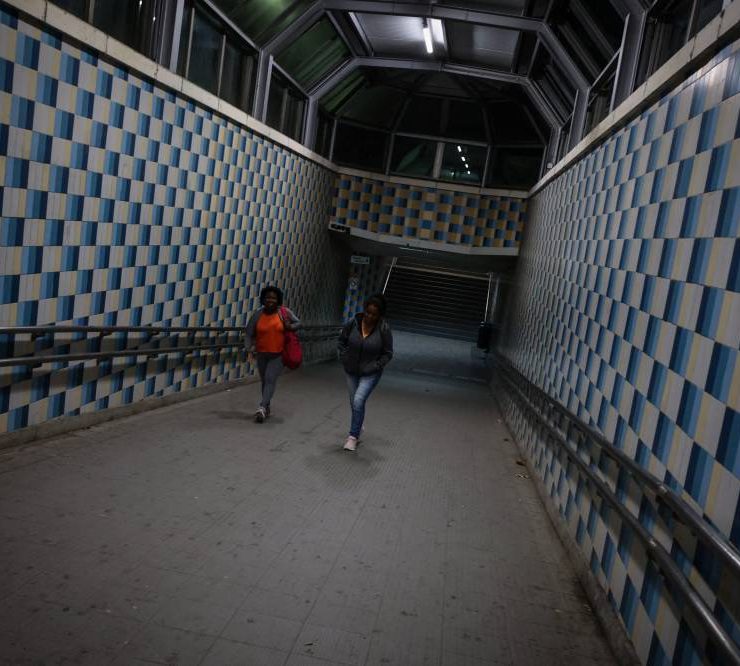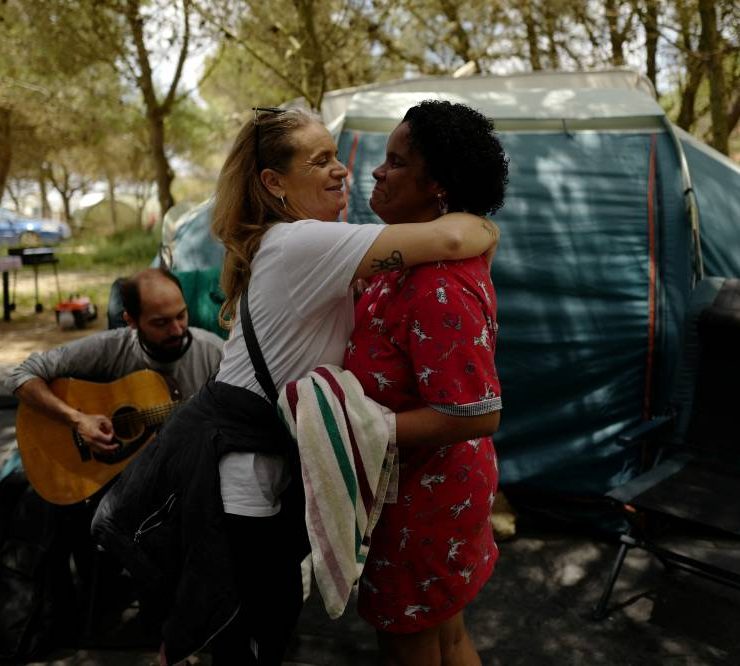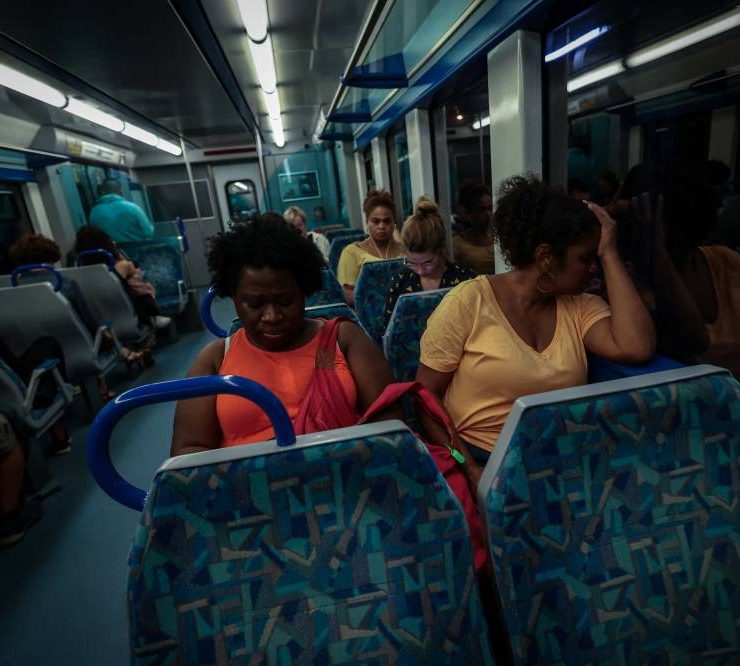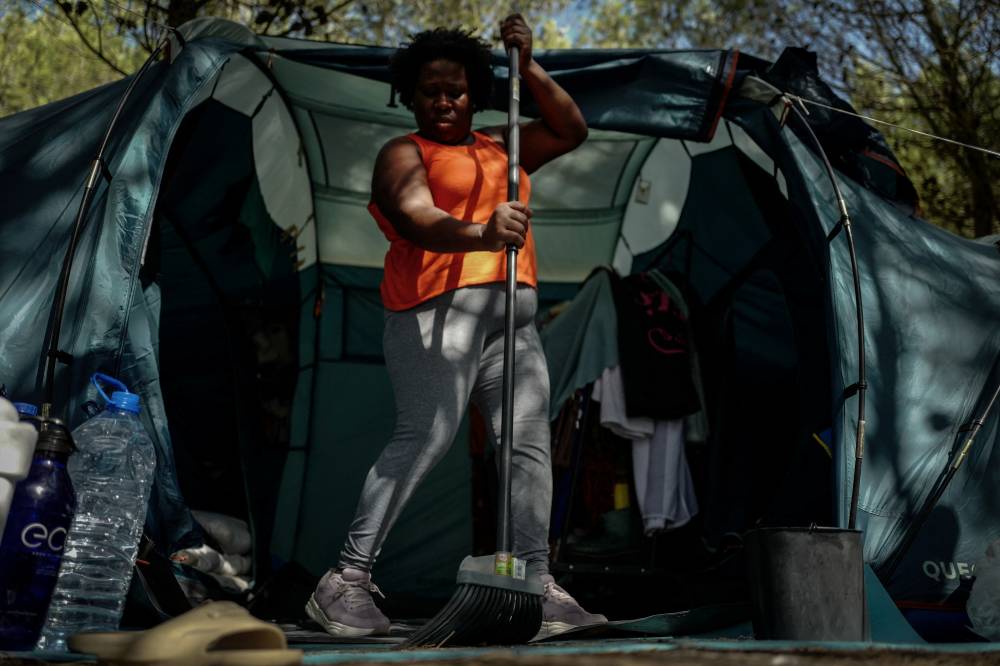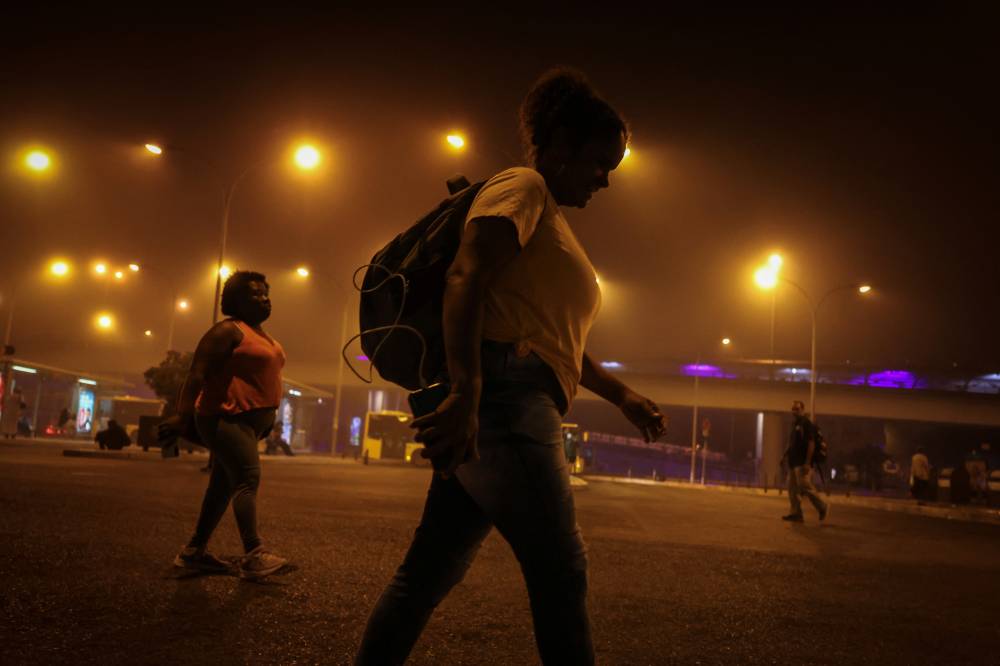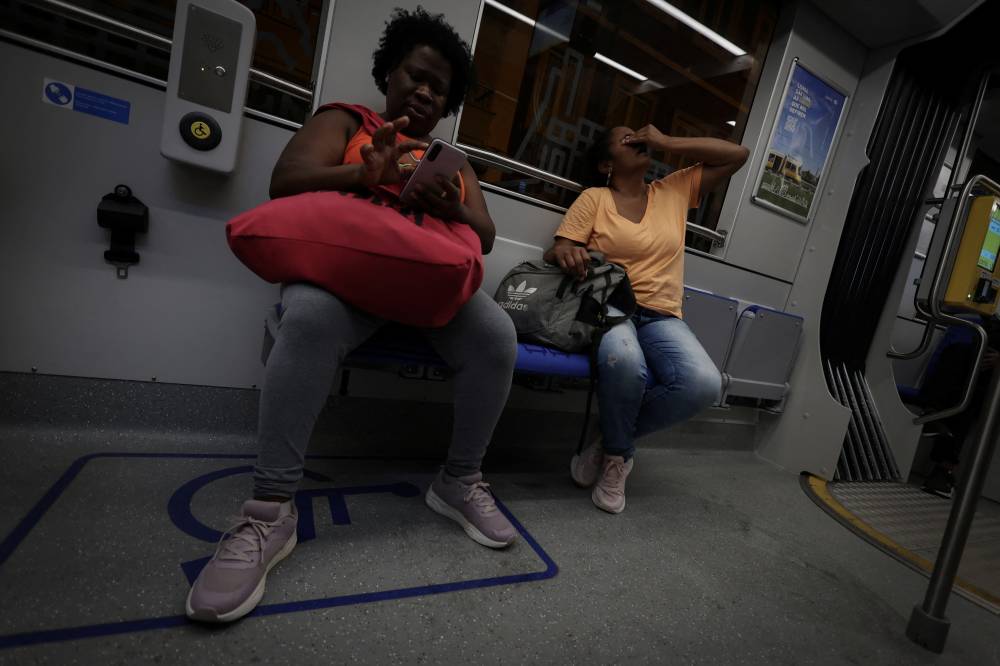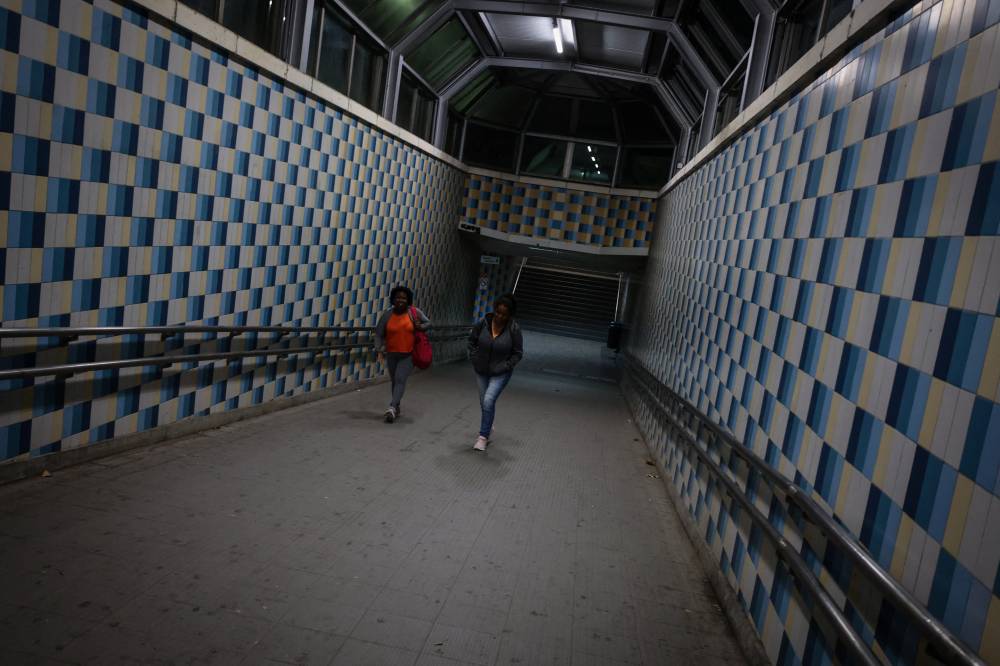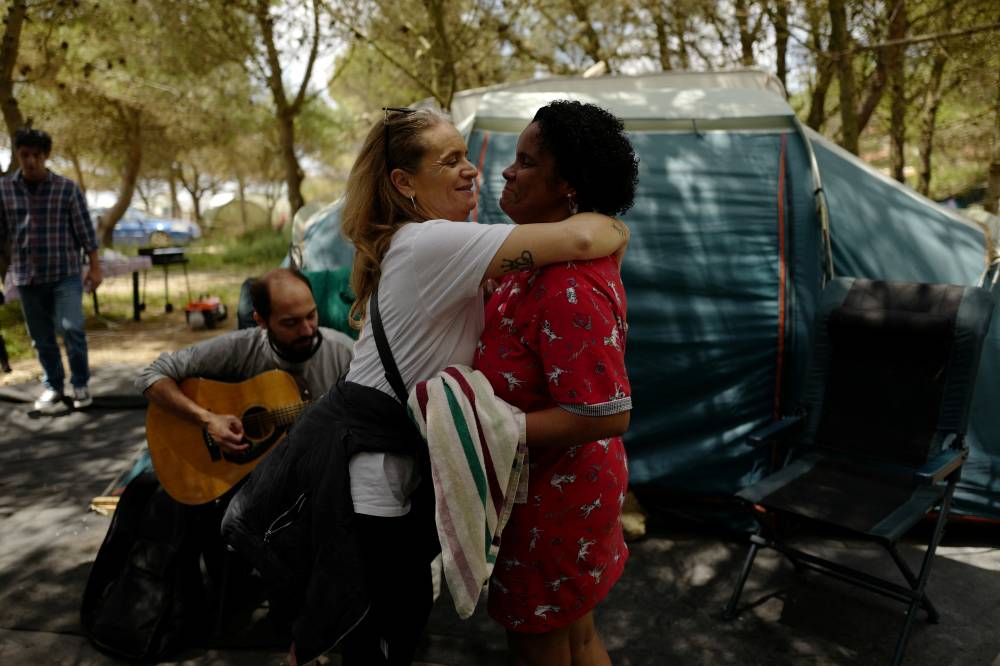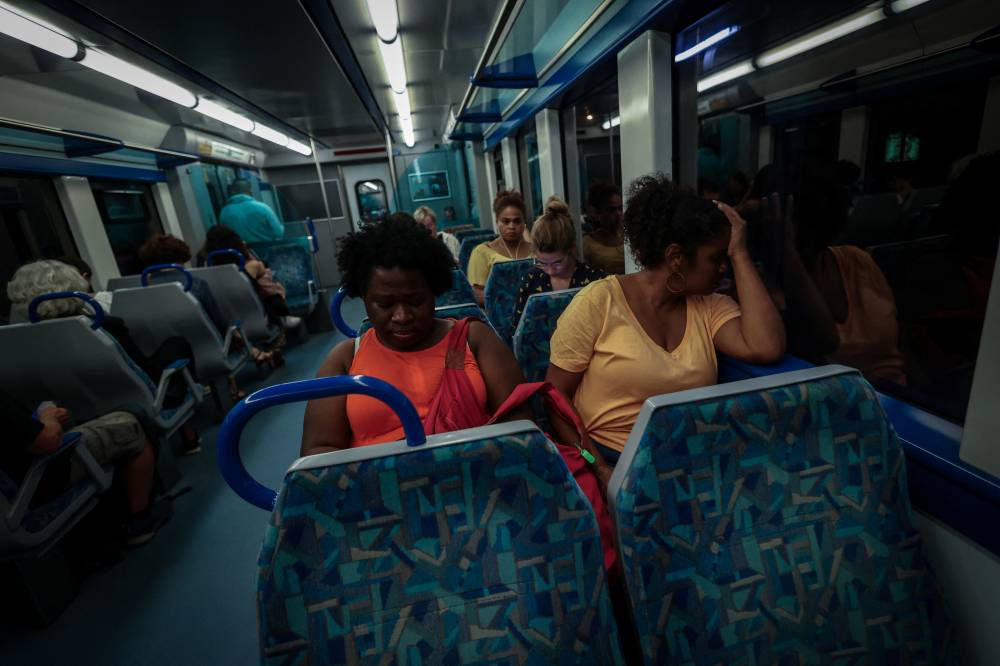Migrants struggle to cope with Portugal’s ‘suffocating’ housing crisis
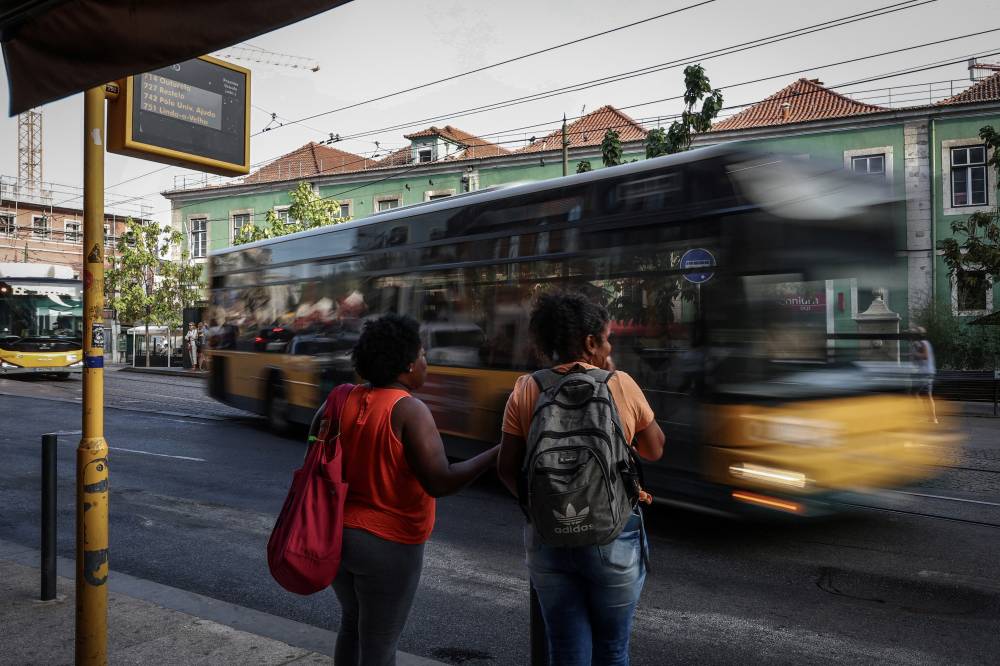



 +4
+4 Migrants struggle to cope with Portugal’s ‘suffocating’ housing crisis
Migrants struggle to cope with Portugal’s ‘suffocating’ housing crisis
Marcia Leandro, 43, from Rio de Janeiro, Brazil, cleans her tent at the improvised campsite in a field where she lives in Carcavelos, in Cascais, Portugal, October 11, 2023. Portugal's foreign population stood at more than one million in 2023, more than double 2018's figure of 480,000. Brazilians make up the biggest migrant community but an increasing number are arriving from Southeast Asia to work in agriculture, hospitality, ride-hailing or delivery. REUTERS/Pedro Nunes
Migrants struggle to cope with Portugal’s ‘suffocating’ housing crisis
Marcia Leandro, 43, from Rio de Janeiro, Brazil (L) and Andreia Costa, 50, from Sao Paulo, Brazil (R) come back from their work as cleaners, in Lisbon, Portugal, October 11, 2023. Costa arrived legally in Portugal with just 600 euros and could only find cleaning jobs paying the then national minimum wage of 760 euros a month. Rent of 400 euros a month for a small room quickly became unaffordable. "I shouldn't have to pay more than 50 percent of my salary for a room," she said. "Renting really suffocates people's lives." REUTERS/Pedro Nunes
Migrants struggle to cope with Portugal’s ‘suffocating’ housing crisis
Migrants struggle to cope with Portugal’s ‘suffocating’ housing crisis
Marcia Leandro, 43, from Rio de Janeiro, Brazil (L), and Andreia Costa, 50, from Sao Paulo, Brazil (R), walk through Carcavelos train station as they come back from their work as cleaners, to the improvised campsite in a field where they live in Carcavelos, in Cascais, Portugal, October 11, 2023. REUTERS/Pedro Nunes
Migrants struggle to cope with Portugal’s ‘suffocating’ housing crisis
Migrants struggle to cope with Portugal’s ‘suffocating’ housing crisis
LISBON — Seeking a more comfortable life, 50-year-old carpenter Andreia Costa moved to Portugal from Brazil in 2022, but within months her hopes were dashed, as the country’s housing crisis left her unable to afford accommodation and forced to live in a tent.
On a site on the outskirts of Lisbon she was joined by other migrants and some locals, priced out of a city where rents have soared 94 percent since 2015 and house prices have risen 186 percent, according to housing data specialists Confidencial Imobiliario.
Meanwhile, Portugal remains one of western Europe’s poorest nations with the region’s lowest average wages.
The housing crisis is rooted in a chronic shortage of affordable housing, aggravated by the arrival of wealthy foreigners lured by residency rights linked for some years to property investment and tax breaks offered by the state.
A tourism boom has seen a surge in short-term holiday lets, further squeezing the housing market.
Costa arrived legally with just 600 euros and could only find cleaning jobs paying the then national minimum wage of 760 euros a month. Rent of 400 euros a month for a small room quickly became unaffordable.
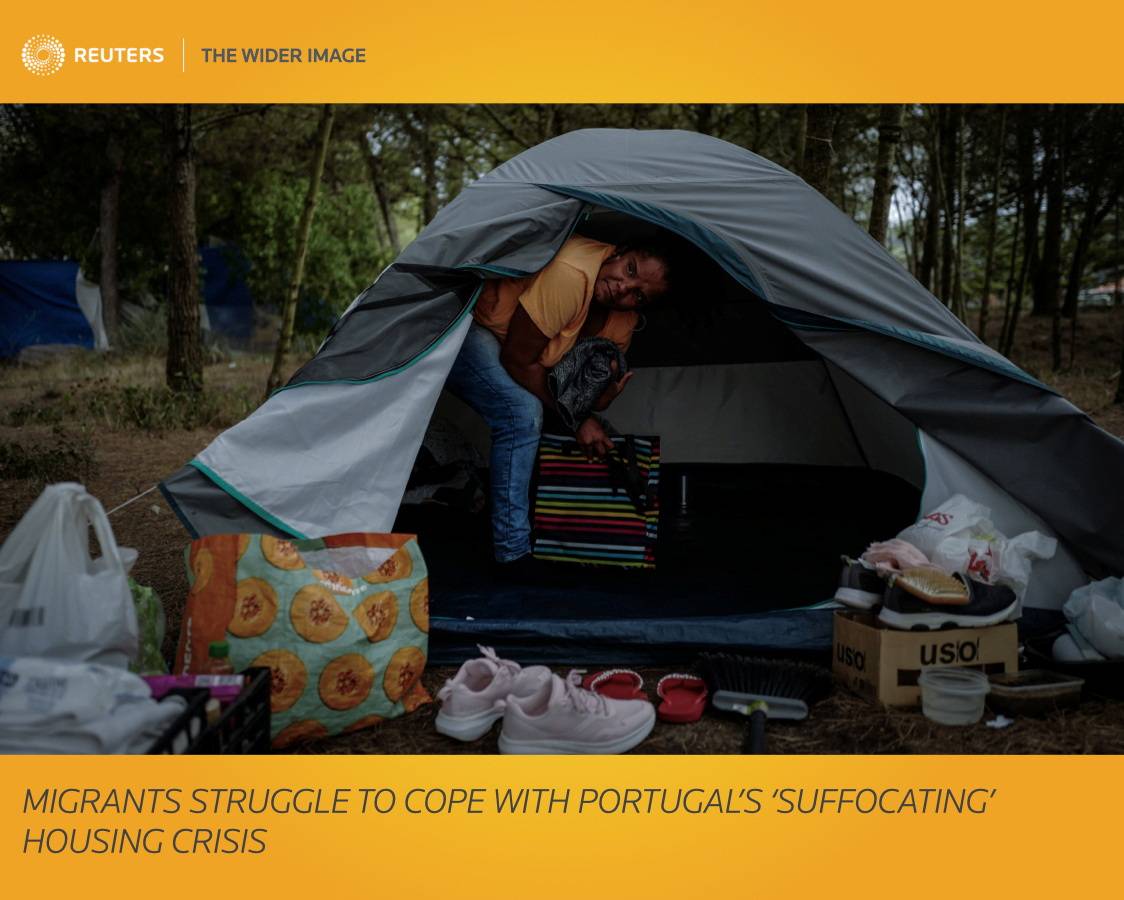
‘Suffocating’
“I shouldn’t have to pay more than 50 percent of my salary for a room,” she said. “Renting really suffocates people’s lives.”
Costa bought a small tent and set it up on a nearly empty plot on the outskirts of Lisbon. As months passed, more people moved in before they eventually had to leave the plot for another site as it was privately owned.
Life was hard. She had to fetch water from beach showers nearby, use portable cooking devices and walk home in complete darkness as there was no street lighting.
Migrants are particularly vulnerable amid the housing crisis, as they are more likely to have precarious jobs and lower salaries, according to the Migration Observatory (OM).
Portugal’s foreign population stood at more than one million in 2023, more than double 2018’s figure of 480,000. Brazilians make up the biggest migrant community but an increasing number are arriving from Southeast Asia to work in agriculture, hospitality, ride-hailing or delivery.
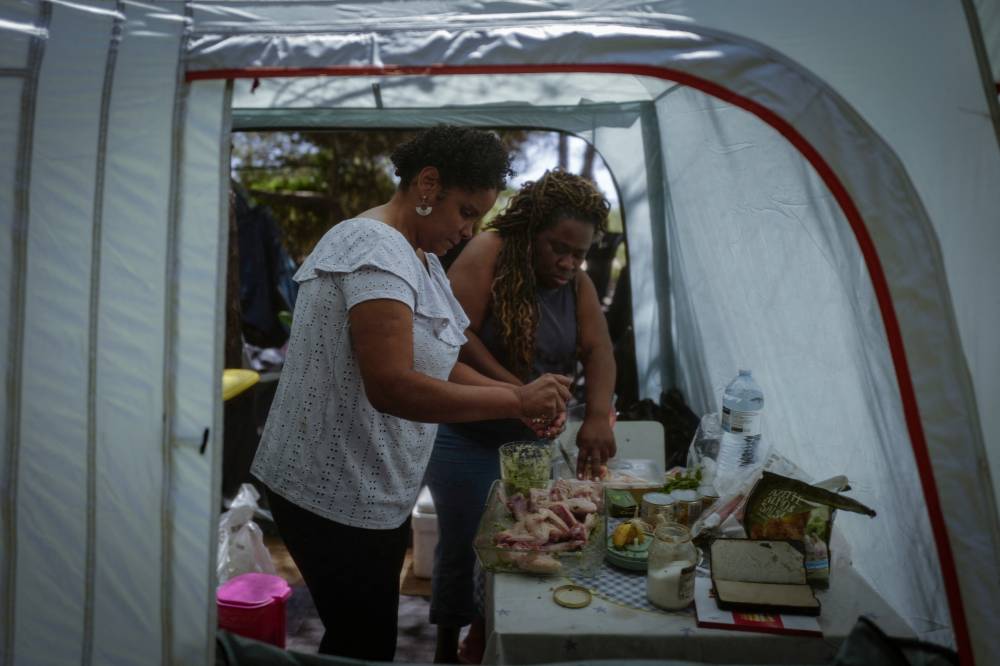
‘Explosion’
“There are two extremes: migrants who are so-called poor… and a ‘rich’ migration of investors, pensioners and highly qualified professionals,” said housing researcher Simone Tulumello.
“This development model, heavily focused on real estate and tourism, is causing this explosion in housing prices, which impacts everyone.”
Researcher Marina Carreiras said migrants often face discrimination in accessing housing and have less information on how to seek support.
Even those who speak Portuguese, such as Brazilians, face discrimination due to their accents. One migrant cited in a recent study by migration association Casa do Brasil spoke of a rental notice saying they don’t rent to Brazilians.
OM data showed 19 percent of people from outside the European Union in Portugal live in overcrowded accommodation compared to around 8 percent of Portuguese, with people from nations such as Nepal and Bangladesh particularly affected.
“Foreigners with low incomes have to live in overcrowded conditions to somehow have a roof over their heads,” said OM Director Catarina Reis de Oliveira, adding that many were renting beds to rest for a few hours during the day.
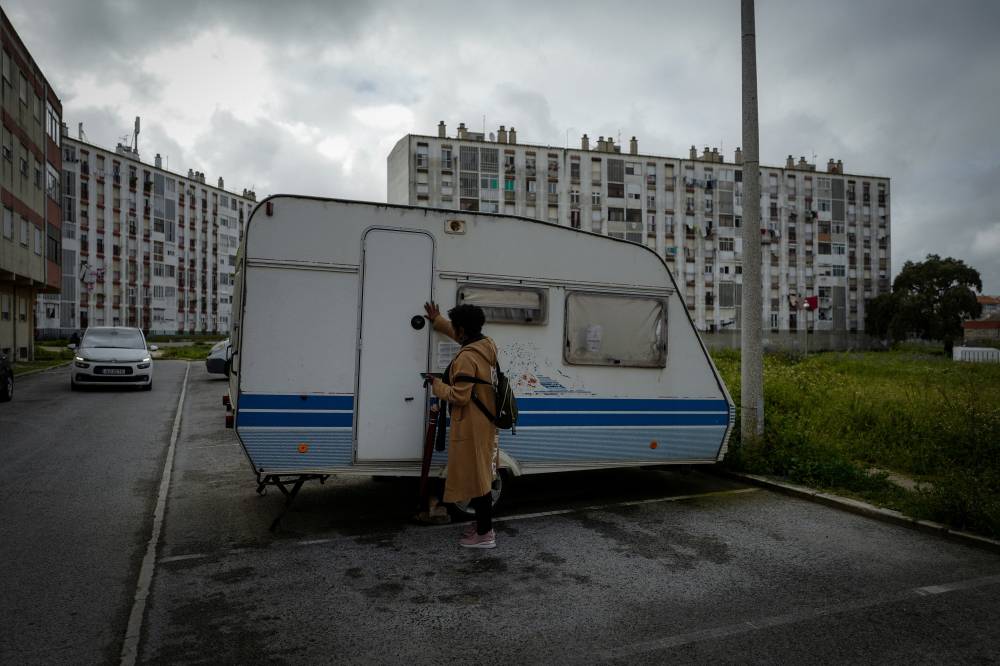
Tulumello called for rent controls and more social housing, and an end to the need for a guarantor or advanced payments.
‘Vicious circle’
Portugal’s center-right government announced in June a new plan toughening some migration rules.
It outlawed a widely-used mechanism called “manifestation of interest,” which for years allowed non-EU migrants without an employment contract to move to Portugal and request residency after paying social security for a year.
A source from the ministry handling migration said the system in place before the new government took power in March had left 400,000 people waiting for their status to be settled.
“This situation, with hundreds of thousands of cases pending a decision… was truly despicable from a human perspective,” the source said, adding the new government had closed the door on irregular migration and would speed up visa processes.
Oliveira said insecurity about their status could leave migrants even more vulnerable.
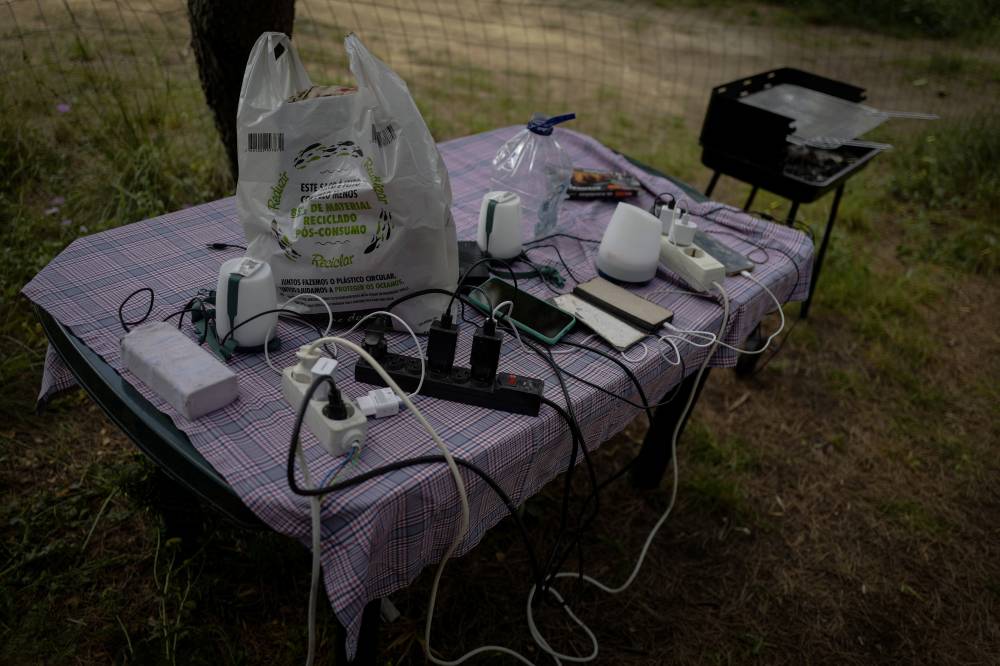
Portugal also plans to adapt its golden visa scheme to allow wealthy foreigners seeking residency rights to invest in affordable housing for locals or accommodation for migrants.
Costa kept a positive mindset through the months living in her tent, and formed a strong camaraderie with another Brazilian campmate, Marcia Leandro. She eventually managed to save enough to buy a small, old caravan.
“I don’t need more than this space to be happy,” said Costa, whose dream is to one day buy a plot of land where others affected by the housing crisis can live.
Reuters, the news and media division of Thomson Reuters, is the world’s largest multimedia news provider, reaching billions of people worldwide every day. Reuters provides business, financial, national and international news to professionals via desktop terminals, the world's media organizations, industry events and directly to consumers.















